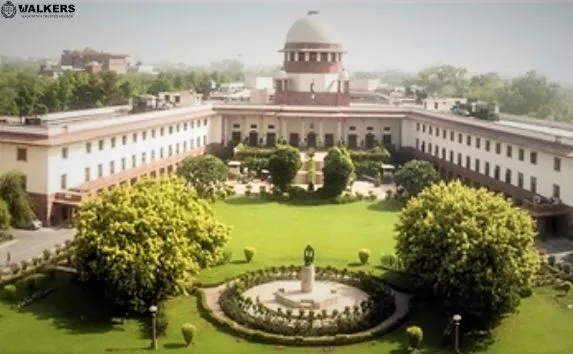


The Supreme Court has made a noteworthy ruling that government employees cannot be deprived of their annual increment simply because they retire the day after earning it. The verdict was reached by a bench consisting of Justices MR Shah and CT Ravikumar, who were hearing an appeal filed by the Karnataka Power Transmission Corporation Ltd. The case centered around the question of whether an employee who has earned their annual increment is entitled to it even if they retire the very next day.
The Karnataka Power Transmission Corporation Ltd (KPTCL) had refused to grant annual increments to employees who retired the day after earning it, citing Regulation 40(1) of the Karnataka Electricity Board Employees Service Regulations, 1997. This regulation specifies that an increment is deemed to accrue from the day after it is earned. KPTCL maintained that since the employees had retired on the day the increment accrued, they were no longer in service and therefore not entitled to it. The High Court had dismissed this contention, prompting KPTCL to take the matter to the Supreme Court.
During the hearing, the appellant was represented by Senior Advocate Huzefa Ahmadi, who contended that increments are a form of incentive designed to motivate employees to perform better in the subsequent year. As such, he argued, there was no rationale behind granting the increment to employees who were no longer in service. However, the Supreme Court rejected this argument, stating that increments are a benefit that employees earn based on their service during the preceding year. The Court further clarified that denying an increment could only be done as a penalty following a fair and impartial disciplinary inquiry.
The Supreme Court bench comprising Justices MR Shah and CT Ravikumar stated that the right to receive an annual increment is established when a government employee has completed the required length of service with good conduct. The increment is payable on the following day, and the term "accrue" in this context should be interpreted broadly. The bench noted that any other interpretation would be arbitrary and unreasonable, resulting in a government employee being unjustly denied a legitimate annual increment for providing good and efficient services over the preceding year. The bench emphasized that a narrow interpretation of the regulation should be avoided.
In a clear rejection of the appellant's contention that increments are a type of incentive, the bench pointed out that this argument would also imply that an employee who earns an increment three days before their due retirement should not receive it. This statement by the bench emphasized the fact that increments are a benefit earned by employees based on their service in the preceding year, rather than a performance-based incentive scheme. The bench's stance further affirmed that the denial of an annual increment is only permissible as a penalty after conducting a fair and impartial disciplinary inquiry.
The bench observed that there have been divergent views on the matter in different High Courts. While the High Courts of Gujarat, Delhi, Allahabad, Madhya Pradesh, and Orissa have ruled in favor of employees, the High Courts of Kerala, Andhra Pradesh, and Himachal Pradesh have taken a different view.
The bench endorsed the view that is favorable to employees and highlighted that annual increments are granted to government employees based on their good conduct while rendering service for a specified period of time. Increments are a benefit earned by employees for providing service with good conduct and efficiency during the preceding year. The bench pointed out that the entitlement to the annual increment arises due to the service already rendered, and an employee should not be denied this benefit merely because they retire on the very next day.
The bench expressed surprise that an employee who has earned and is entitled to an annual increment for providing good and efficient services over the preceding year should be denied the same due to retirement the following day. The bench emphasized that the annual increment is a benefit earned by government servants for their service with good conduct, and its entitlement should not be denied on such arbitrary grounds.
According to the bench, denying an employee the annual increment, which he has earned for the services rendered with good behavior over a year, would amount to punishing the employee. The bench held that the increment can be withheld only as a penalty, or if the employee has not performed the duty efficiently.
The bench emphasized that if the interpretation suggested by the appellant is accepted, it would lead to the denial of the annual increment earned by the employee for rendering services with good behavior, which would be unreasonable and arbitrary.
Advocate Mallikarjun S. Mylar represented the employees in the case.
TAGS: Supreme Court government employees annual increment retirement Karnataka Power Transmission Corporation Ltd Regulation 40(1) service regulations Huzefa Ahmadi incentive good conduct penalty disciplinary enquiry High Courts Gujarat Delhi Allahabad Madhya Pradesh Orissa Kerala Andhra Pradesh Himachal Pradesh service period Mallikarjun S. Mylar.